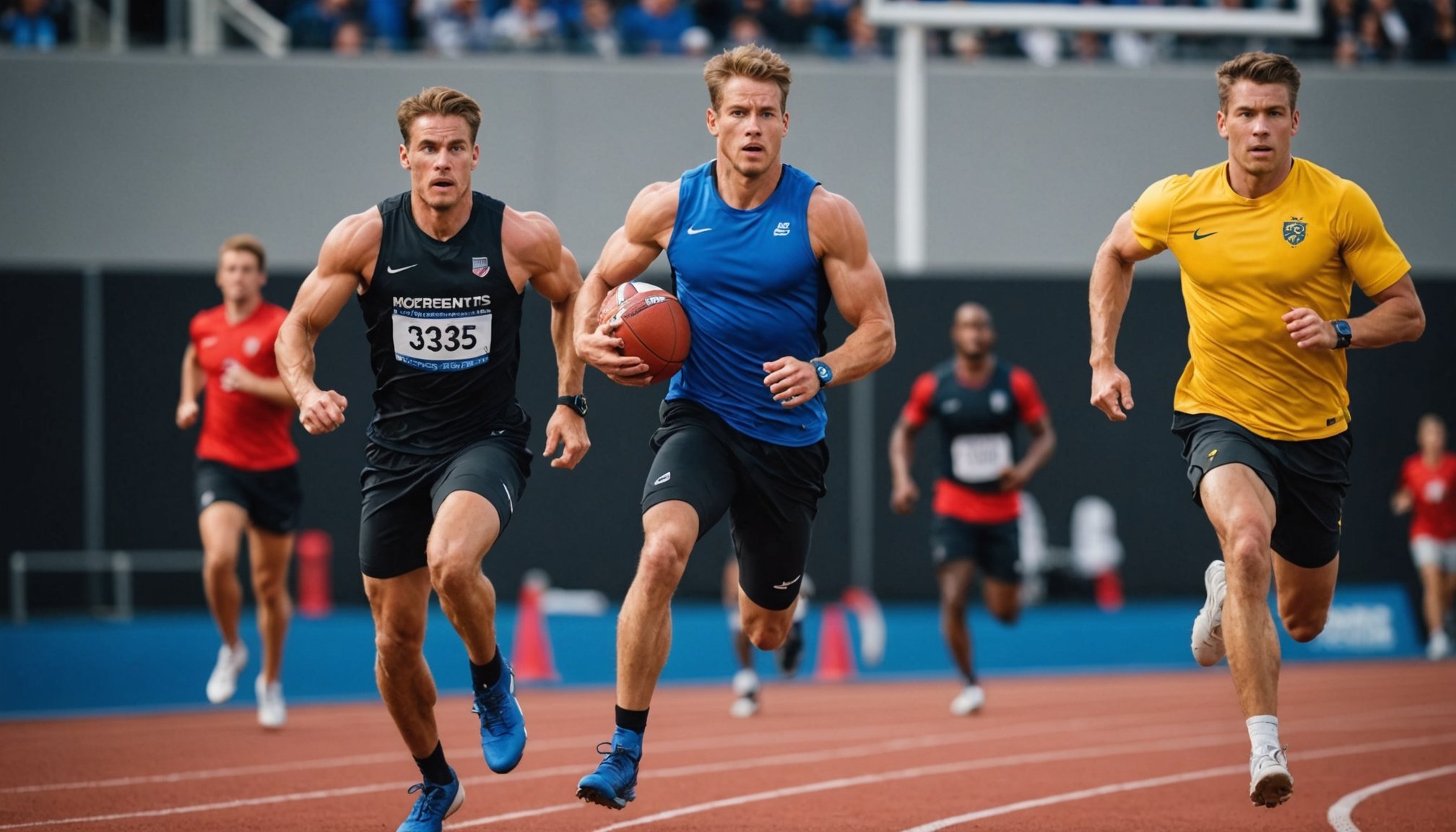Understanding Mental Toughness
Mental toughness is crucial in sports, referring to the ability to remain resilient and perform optimally under high-pressure conditions. Its components include emotional regulation, confidence, focus, and motivation. Athletes often face intense challenges that test their resilience. Having a mentally tough approach means maintaining control and commitment despite adversity. High-level performances usually rely on this kind of psychological robustness.
Playing a pivotal role, sports psychology enhances the understanding and development of mental toughness, shaping the methods athletes use to prepare mentally for competitions. Techniques explored in sports psychology can support athletes in building mental endurance, promoting better performance outcomes.
Topic to read : How can incorporating yoga into your fitness routine improve flexibility and mental clarity?
In high-pressure competitions, athlete performance isn’t measured solely by physical capabilities but also by the mental strategies athletes employ. For instance, sustaining concentration and composure aids in managing stress and performing consistently well. Integrating mental toughness training into an athlete’s routine can significantly influence their competitive performances.
Ultimately, developing mental toughness through psychological preparation offers athletes an edge, enabling them to handle pressure effectively and excel in their respective sports.
Also read : What are the key components of a successful marathon training program?
Mindset and Performance
Understanding the impact of a growth mindset on performance psychology can provide athletes with a competitive edge. Emphasising that mental toughness is not innate, a growth mindset encourages the belief that abilities and intelligence can be developed through dedication and hard work. This approach underscores perseverance and flexibility, equipping athletes to face challenges and improve continuously.
Psychological theories such as Carol Dweck’s mindset theory support the relationship between mental toughening and sustained high performance. Embracing a growth mindset helps athletes view setbacks as learning opportunities rather than limitations, facilitating a more resilient approach to training and competition.
Mindset shifts can strongly correspond with competitive success. Athletes who adopt a mindset that accepts failure as part of the journey often demonstrate greater adaptability and innovation. These psychological shifts empower athletes to harness their potential and perform optimally even when faced with adversities.
To maximise potential, athletes need to cultivate an invigorating mindset. This process involves focusing consciously on psychological development alongside physical training, fostering a comprehensive performance approach. By integrating these mental strategies, athletes enhance their overall resilience, ensuring preparedness to confront varied competitive landscapes.
Core Psychological Strategies
Understanding the application of psychological strategies is integral for athletes seeking to build resilience through cognitive training. These strategies encompass various techniques aimed at enhancing mental fortitude.
Visualization Techniques
Visualization serves as a potent tool, allowing athletes to mentally rehearse scenarios and craft success in their minds. This mental rehearsal enhances performance by creating neural patterns similar to actual physical performance, aiding in confidence and focus.
Mindfulness Practices
Incorporating mindfulness practices into an athlete’s routine can significantly improve emotional regulation and reduce anxiety. Mindfulness fosters present-moment awareness, which helps athletes remain calm under pressure. Regular practice can improve concentration and allow for swift recovery from distractions.
Goal-Setting Frameworks
Utilising structured goal-setting frameworks like SMART goals is essential for fostering mental toughness. Clearly defined, achievable goals ensure steady progression, reinforcing persistence. By setting specific, measurable, attainable, relevant, and time-bound objectives, athletes can systematically work on both their physical and mental capabilities. Implementing psychological strategies not only refines an athlete’s skill set but also fortifies their overall mindset, gearing them towards success in competitive environments. These methods collectively cultivate a resilient and determined athletic persona, ready to face any challenge.
Case Studies of Elite Athletes
Understanding mental resilience in athletes often involves examining success stories and specific techniques utilised during high-stakes situations. These athlete examples highlight the profound impact of mental toughness on performance.
Several elite athletes exemplify remarkable mental resilience, learning from failures to enhance their competitive edge. Take Michael Jordan, who famously stated, “I’ve failed over and over again in my life. And that is why I succeed.” His approach illustrates how facing setbacks can build stronger mental fortitude.
In high-pressure sports like tennis, Serena Williams demonstrates extraordinary resilience and adaptability. Her ability to maintain focus under intense scrutiny showcases effective cognitive techniques pivotal in competitive success. Williams’ strategic mental approach helps sustain performance by capitalising on calmness and calculated pressure management.
Common strategies among elite athletes include visualisation techniques and robust goal-setting frameworks. By simulating success mentally and setting structured objectives, athletes channel their focus toward overcoming adversities. This structured approach results in sustained performance improvements.
Studying these examples, athletes can gain insights into practical methods for cultivating mental toughness. Learning from these pioneering figures encourages aspiring athletes to adopt resilient mindsets and develop tailored strategies for personal growth.
Implementation of Mental Training
Mental training techniques are indispensable for athletes aiming to bolster their competitive mindset. Building a regimented approach to mental preparation enhances focus and resilience.
Daily Routines for Mental Toughness
Incorporating consistent mental exercises into an athlete’s routine is vital. Daily practices, such as visualization and mindfulness, can set the tone for effective cognitive training. These exercises allow athletes to rehearse mentally, pushing past physical limits through sheer mental conditioning.
Coping Mechanisms for Stressful Situations
Stress management is crucial in high-stakes situations. Utilizing coping mechanisms like deep breathing and emotional regulation techniques can help athletes maintain composure. Techniques like progressive muscle relaxation and mental refocusing strategies equip athletes to handle pressure, thus enhancing their performance.
Team Dynamics and Support Systems
Having a strong support network is paramount. Team dynamics play a pivotal role in reinforcing an athlete’s mental toughness. Collaborating with coaches, psychologists, and teammates aids in maintaining morale and motivation. Engaging within a supportive team structure assists athletes in tackling stress and embracing resilience through shared experiences and encouragement.
Resources for Further Learning
Exploring sports psychology resources can significantly enhance an athlete’s mental fortitude. Accessing materials like mental toughness books and seminars allows for continued growth and understanding of key concepts.
Recommended Readings
Selecting the right mental toughness books offers valuable insights into improving one’s psychological approach towards competitiveness. Books authored by renowned sports psychologists provide comprehensive strategies, making them essential reads for athletes keen on strengthening their mental resilience.
Online Courses and Workshops
Engagement in online courses and workshops centred on sports psychology can further bolster an athlete’s mental training regimen. These resources often include structured curriculums designed to impart practical skills. By enrolling in dedicated courses, athletes can delve deeper into psychological strategies necessary for performing under pressure.
Professional Organizations and Networks
Connecting with professional organizations ensures ongoing support and education in enhancing athlete performance. Collaborating with networks like the Association for Applied Sport Psychology or the British Psychological Society opens doors to seminars, workshops, and peer insights, nurturing a community that promotes mental strength development.
By tapping into these resources, athletes can expand their knowledge on mental toughness and practice new techniques to refine their mentality in high-pressure environments.










